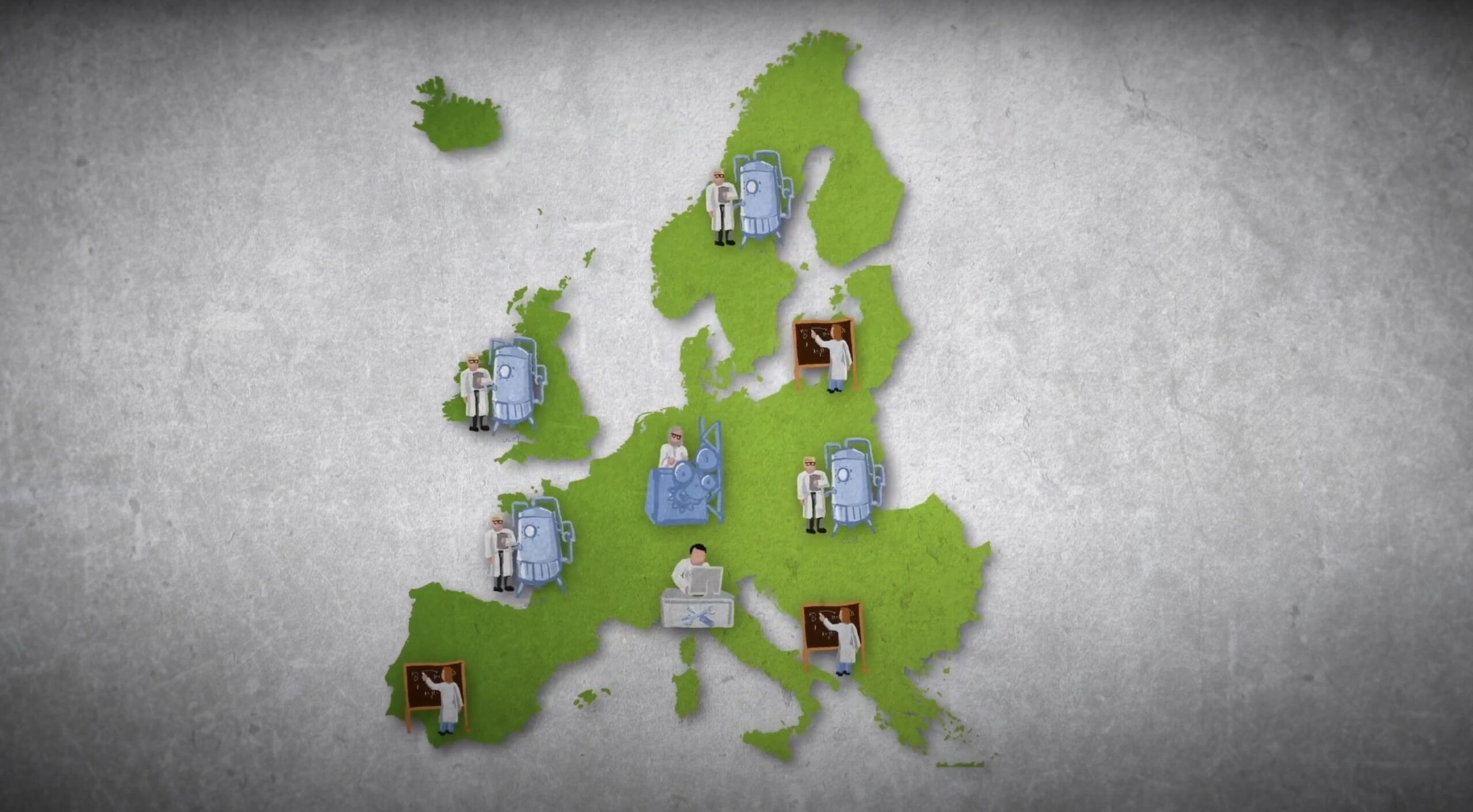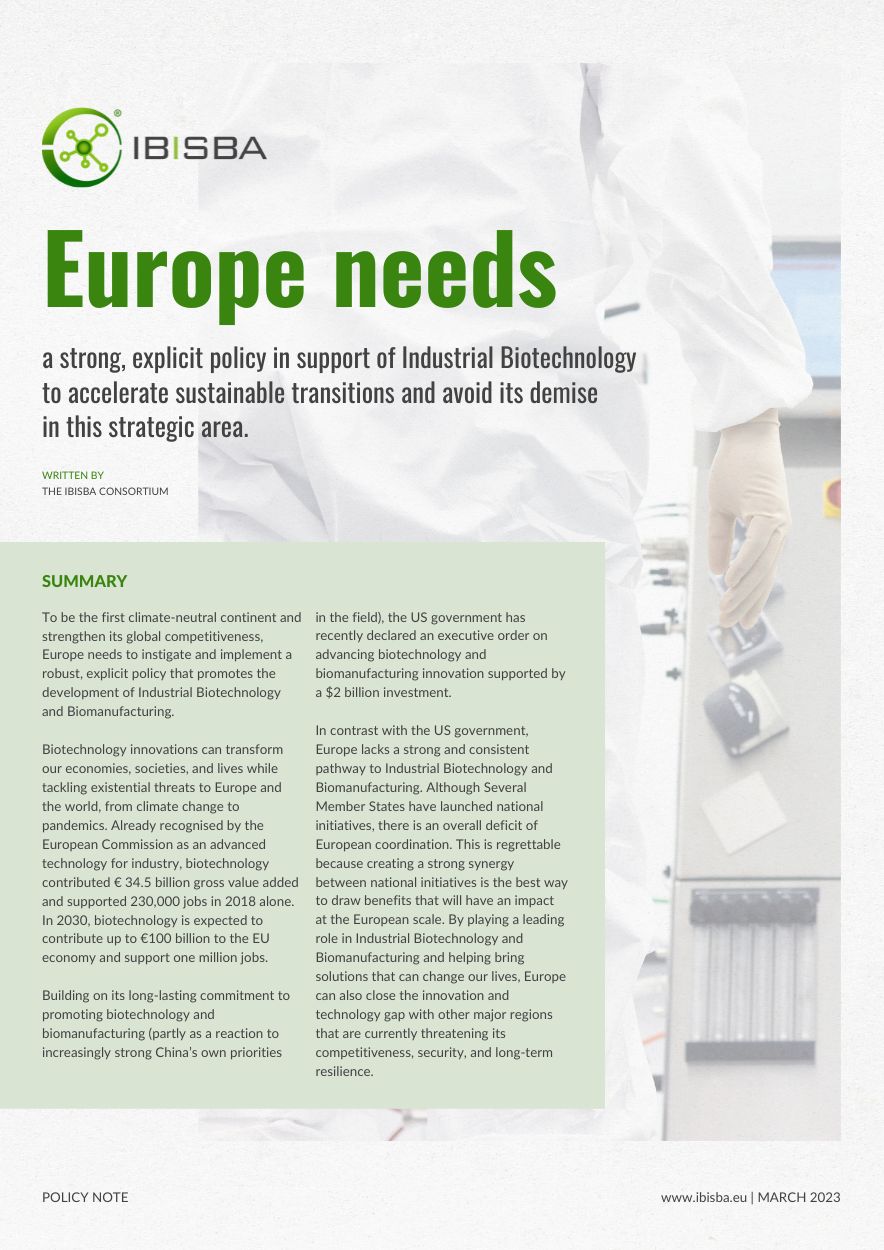Our Vision
A world where Europe’s Industrial Biotechnology drives the global circular bioeconomy transition

Industrial Biotechnology is A Key Driver for Europe's Circular Bioeconomy Transition
Europe aims for carbon neutrality by 2050 through the circular bioeconomy, which harmonises economic competitiveness with environmental sustainability by leveraging renewable resources and efficient processes. Despite its promise, transitioning poses challenges in replacing fossil-based systems, necessitating research and innovation for competitive, sustainable solutions. Industrial biotechnology emerges as a transformative force within the circular bioeconomy, driving low-impact manufacturing processes in many sectors including energy, agriculture, forestry, and pharma. In other words, industrial biotechnology is set to become to the circular bioeconomy what industrial chemistry has been to the petro-economy.
Numerous evidence-based advantages
Recognised as 1 of the 6 Key Enabling Technologies by EU to support bioeconomy
Offers solutions to several EU policies (e.g. European Green Deal, European Climate Law, Net Zero Industry Act, Circular Economy Action Plan)
Creates 900k -1,5M jobs by 2030
Generates €55,5 billion to €99,55 billion turnover by 2030
No Single European Country Can Spur the Development of Industrial Biotechnology
Industrial biotechnology, although promising, requires continuous research for widespread adoption in the manufacturing sector. Europe boasts ample public research facilities and expertise spanning lab to pilot scale, yet research in this field is fragmented and lacks coordination. Major facilities are often underutilized, hindering knowledge consolidation and leading to lengthy R&D timelines. These challenges contribute to the slower development and limited competitiveness of industrial bioprocesses compared to established petrochemical processes.
In the face of fierce international competition and concern that Europe’s innovation capacity is weakening, it is evident that no single European country can succeed the circular bioeconomy transition. Likewise, no single research facility can spur the development of industrial biotechnology. This is particularly true when one considers that it is increasingly necessary to mobilise large amounts of data to fuel digitalisation and artificial intelligence. If Europe wants to regain industrial sovereignty and compete with international players such as the USA and China, European research facilities must reinforce and deepen interdisciplinary cooperation. By doing so, they will lay the basis for an efficient industrial biotechnology research and innovation ecosystem fit for digitalisation and capable of supporting the development of a flourishing industry. Taking cooperation between Europe’s research facility operators to a next level will ensure that EU investments are optimised and that European ambitions for industrial biotechnology are achieved.


IBISBA: the only European distributed research infrastructure dedicated to industrial biotechnology
IBISBA aims to overcome these obstacles by facilitating knowledge sharing, promoting best business standards, and accelerating research and development. With harmonised procedures and a repository of biotech knowledge assets, IBISBA offers a single access point to European infrastructure capabilities, ensuring a range of interoperable R&D services.
Europe needs a strong, explicit policy in support of Industrial Biotechnology
The policy note advocates for Europe to implement a strong policy promoting Industrial Biotechnology and Biomanufacturing to achieve climate neutrality and enhance global competitiveness. It highlights the transformative potential of biotechnology innovations, economic benefits, and the need for European coordination to bridge innovation gaps and bolster competitiveness, security, and resilience.
Experience the heartbeat of
Biotechnology Innovation
Join 1000+ professionals who receive the trendiest news about industrial biotechnology, collaboration opportunities, and upcoming events.
By signing up to our quarterly newsletter, you agree to our Privacy Policy

